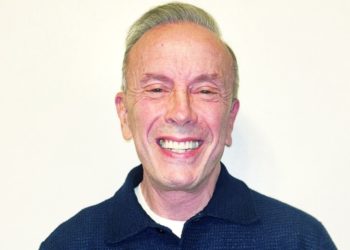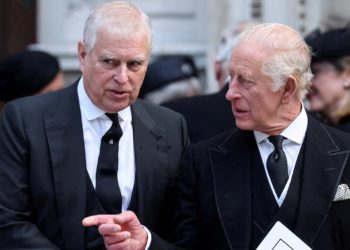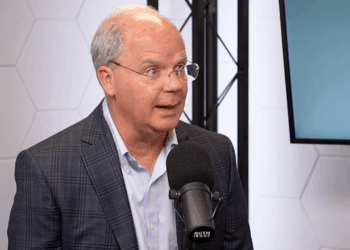This essay was adapted from a commencement address to the graduates of New York University’s Tisch School of the Arts.
The year after you graduate from college is strange and hard, and I’ve been thinking about what I wish I could tell that version of myself nine years ago.
I’d tell her the usual things: Stay hydrated. Wear sunscreen.
I’d remind her that rest is a part of the job.
I’d tell her that her friends are the most important people to her career. Someone told me that when I graduated, and I didn’t believe them because I was so excited about all the life and new faces ahead of me. But they were right.
A lot of what happened while I was in college was just me figuring out the truest version of myself. And figuring it out with my friends.
I had a friend who took photos. A friend who made films. A friend who sold drugs. A friend who worked the door at Webster Hall. We wanted to document everything. Write everything down. What’s happening to us is important. We’re going to see everything. Feel everything. We are going to make art that changes the world.
And really — we were learning how to dream. A lifetime making art is in some ways about your tolerance for risk, whether it’s money or lifestyle or your own heart. But it’s equally about your ability to dream.
I’d tell her to keep the dreams bigger than the fear.
In those four college years, I fell in love. I joined a band. And another band. And another band. We created fake managers with fake email addresses to book us shows we were nowhere near ready for but wanted more than anything.
I called an old bandmate a couple of days ago to ask if they remembered the name of that fake manager—it was Jack Demarco.
That day I first met my classmates was 13 years ago now, but I was in the studio with two of them last week. And when we work together it feels like going home. Making for the joy of making. Going back to a time when we were free and experimenting and creating as a way to taste the world.
The thing about being an artist is that it’s not a profession; it’s a vocation. It’s not something you do or sign up for. It’s who you are. It’s something that calls to you from the deepest depth of your being. I’d tell her to trust that knowing.
In the years between learning how to dream and actually getting there, the whole time I felt like I was being tested. Like the universe kept asking: You are sure this is what you want? Is it what you want even if you’re going to be heartbroken? Or vulnerable? Or exhausted?
When you love something so much, it can be terrifying to give it everything you have. And god forbid I failed at a music career at 20. Then my life would really be over.
I remember coming home from the studio one night my senior year with a new song I was calling “Alaska.” I hadn’t really made music I loved in a few years, and my adviser, Errol, had just informed me that I really needed to show up if I was going to pass my final semester as a recorded music major.
I sat on the roof of my East Village apartment that night with my roommate, wondering if it was good enough. We both agreed: “Way too poppy.” But its existence still meant I had something to turn in on Monday.
All those big dreams kept me going and kept me focused, but when it came down to it, it didn’t actually matter what I had planned or pictured for myself. I spent so much time learning how to hone and control my craft, but the hardest part was learning how to let it happen.
I’d tell her that her most important collaborator is not a person; it’s a moment. On a foggy day in March of my senior year, my career arrived overnight.
It’s this Cinderella story of a video — maybe you’ve seen it. Maybe it was force-fed to you. If you haven’t seen it, I play a song for Pharrell Williams. He really likes it. His reaction goes on YouTube. Ta-da, I’m famous.
I remember being terrified of changing. That fame would come for me and I wouldn’t stay grounded or stay the same Maggie. And of course it changed me. The creation of a piece of work will always fundamentally and holistically transform you. And that’s kind of the whole point.
What people saw in that video was this moment of alignment. They saw a past life or the universe or whatever you want to call it come along and hold my hand to the flame.
But no one saw the hard work. Or all the times I almost quit. No one heard the songs that didn’t work or the shows that were just bad. I’m remembering particularly this Halloween D.J. set just as Baby’s All Right was opening where I was dressed as the death of capitalism … still relevant.
There were all these almost exits. Things that people will never see. Moments when it almost didn’t happen or I missed the window.
Art is not an industry or a game; it is a practice. I’d tell that girl nine years ago that, over and over again, it’s your artistic faith that will save you. I’d tell her it’s kind of punk to take the long road. I’d remind her that no two artistic careers will ever be the same, and that the numbers do not matter. What matters is how you make people feel.
I’ve been thinking a lot lately about Radio City Music Hall. It’s where my New York University graduation was held, where I’ve been lucky enough to play many sold-out nights, and where I was honored to be the commencement speaker two weeks ago.
The thing I always remember about that stage is that when the spotlight hits you and the crowd goes dark, the only thing you can see are the exit signs. There’s 47 of them, the last I counted.
Maybe, just maybe, all exits can be entrances, too. Maybe it’s about embracing the time in between — the minutes we have left. And all that will always be left unsaid.
Maggie Rogers is a songwriter, producer and performer.
The Times is committed to publishing a diversity of letters to the editor. We’d like to hear what you think about this or any of our articles. Here are some tips. And here’s our email: [email protected].
Follow the New York Times Opinion section on Facebook, Instagram, TikTok, Bluesky, WhatsApp and Threads.
The post Maggie Rogers: The Truth About Dreams appeared first on New York Times.




